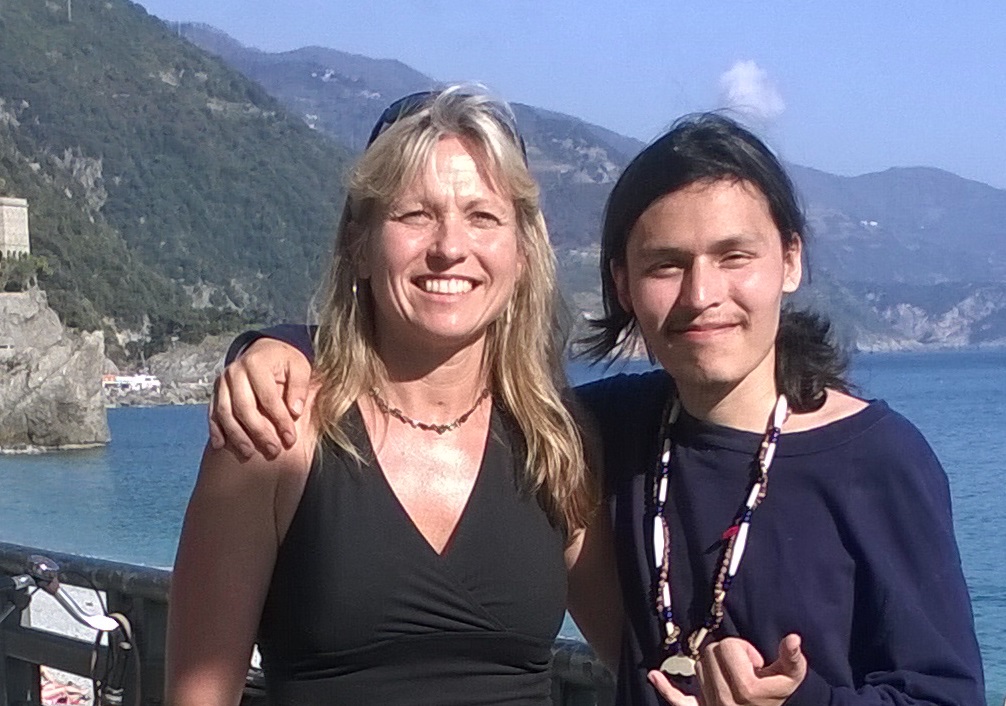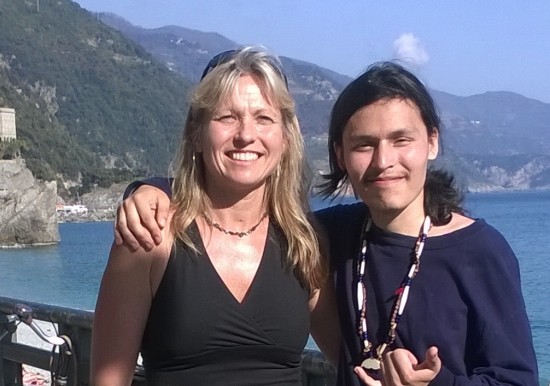
By Giovanni Roverso
Makah Native John Pritchard III made a name for himself thanks to slam poetry. His supporters, inspired by his work, helped him publish his first collection of poems, “We Only Love Freedom” in 2014. The same force allowed him to overcome the monetary barriers that stood between him and studying abroad in Florence, Italy for a quarter last spring.
Pritchard said the thing he appreciated the most about the whole experience was seeing so many people supporting him when it was announced.
Pritchard takes the Studium Generale stage on Nov. 3 with Valerie Conroy, coordinator of Peninsula College’s study abroad program, to talk about his travels and to promote the Washington Community College Consortium for Study Abroad.
Conroy joined travel Pritchard in Florence for the fourth week of the quarter.
“John gave me a nice tour of Firenze since he knew his way around quite well by then. We walked around the Duomo and through all sorts of little streets and alleys,” Conroy said, “The most enjoyable thing for me was seeing John Pritchard walking around Firenze like a local, looking completely at home.”

Pritchard took a Public Speaking and an Interpersonal Communications classes with U.S. community college instructors and one five-credit language and culture class with local instructors.
He said his favorite part of the actual stay in Italy “was traveling and going to all the museums, the food and the girls.”
“The thing I brought home the most was architecture,” he said, “like how over there everything is detailed from the walls and ceiling.” He said it made him want to see a coastal art building with similar qualities close to home in the U.S.
He said he loves how everything in Italy felt slowed down:
“Like at a restaurant, you’re expected to spend time there and you’re not rushed, and the food is all hundred percent fresh, I loved that. The fruits and meats were a lot better than here.”
One thing he did dislike, however, were the street hustlers that “will come to you when you’re eating and bother you.”
It’s more common to find large amounts of people move around on foot in Italy, similar to some large U.S. cities where the population density is higher. Generally, public transportation is more ubiquitous in Europe allowing people to travel more easily.
“You walk everywhere and have to talk to people instead of here where everybody has their own cars and never socialize,” said Pritchard.
Another perspective he witnessed was the immigration issues there, which he talked about in a speech to his public speaking class. In light of the recent refugee polemics, Pritchard said he would support allowing refugees into the U.S. if they needed the help.
“To me it’s funny how one of the most cherished things America has is the Statue of Liberty,” he said, and remembered parts of the poem “The New Colossus” found there, give me your poor and your wretched, those starving trying to reach our shores, and then how Americans have the most hatred toward immigration.
“Just like it is funny how people are all of a sudden praying for Paris but not giving a damn about Palestine or all these other people being bombed every day,” he said.
If he had to pick one thing Americans should learn from European culture, he said, “I guess just slow down enjoy your meal, your company. Who is around you.”
“The trip was a hundred percent worth it,” said Pritchard, “you don’t even have to go to Italy. The cliché that traveling abroad will change you is true, get out and do it. Nothing from home will change so get out of your comfort zone and have an amazing time.”
